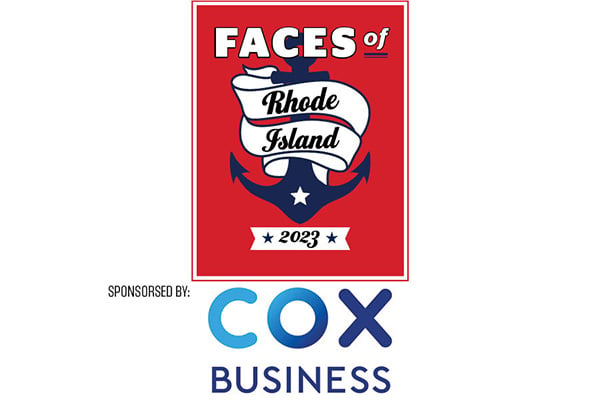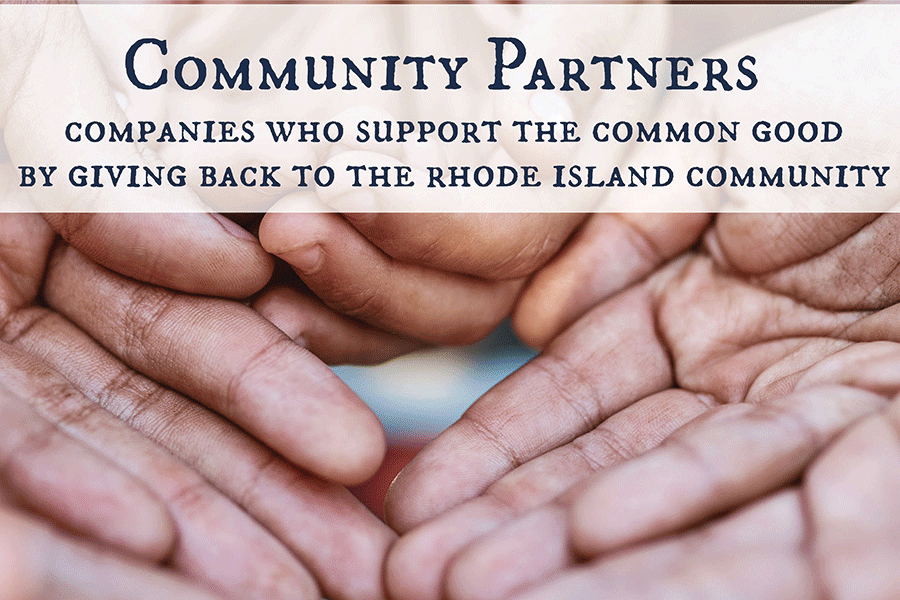Misquamicut is Rhode Island’s Most Resilient Community
Neither Mother Nature nor man have bested the scrappy seaside village of Misquamicut, a playground for Rhode Islanders since the turn of the century.
It’s a perfect summer day in Misquamicut late in August of 2019, and there isn’t a soul here to see it. Vehicles fill the lots between Winnapaug and Weekapaug roads, but nobody’s on the street. With every blow of the breeze, the moment feels more like a Don Henley song — and a premonition.
Then, over there: Signs of life. A pair of lanky green martians materialize between two buildings and bobble through a parking lot carpeted with crushed white shells. Aliens at the beach? Sure; Misquamicut has always had a surreality about it.
On closer inspection, it’s just a couple of boys with inflatables slung over their shoulders — wins from a nearby arcade, no doubt. We’re the only ones on the sidewalk, the kids, their martians and me. The sky above us is almost translucent, and the cool air feigns protection from a beating sun. The boys cross Atlantic Avenue, trading playful shoves all the way.
Opposite them, the siren sounds of summer transcend the white noise of wind and waves. I weave through a lonesome cluster of red-roofed buildings to a patio at the edge of a green-blue sea. Everybody, it turns out, is at the Windjammer.
Scores upon scores of ladies and gentlemen, some in their swimsuits, sip drinks beneath blue Sam Adams patio umbrellas. The lucky ones, with pink cocktails in-hand, hovered long enough to claim colorful Adirondack chairs — complete with cup holders! — and sun their legs on the bar’s cement seawall. Seagulls pace on flattened boulders while a sliver of private beach hosts sunbathers in fold-out chairs, their toothy grins catching the reflection of the open ocean. That part — the tonic of the sea, its transformative effect on our constitution — hasn’t changed in the near-century Charles Trefes’s family has owned the Atlantic Beach Park and its cluster of businesses, including the Windjammer, Dusty’s Dairy Bar, a snack shack, an arcade and a carousel.
Trefes, an imposing figure who’d be unrecognizable without his blue mirror sunglasses, leads the way to the carousel building — the quietest spot in the place and, by all measures, a major source of pride for him. (Case in point: He has a dedicated “foot guy” tasked with reconstructing horse hooves damaged by wild riders.)
The merry-go-round — once open-air — was the main attraction in the early years after Trefes’s grandparents bought the place in 1921. They cemented their legacy as a playground for the everyman, selling hot dogs and carousel rides for pennies to tourists fresh off the Norwich rail line. The park itself has evolved over time — the Windjammer building was once a roller-skating rink, and it has the flooring to prove it — but that’s what it takes to stay in business for three generations, Trefes says.
“We’re the second-oldest continuously owned family amusement park in the country,” he says, proud to have nailed the epithet on the first try. While major storms have threatened or demolished businesses around him, Trefes’s has stood strong. After the hurricane of 1938, his grandfather had the forethought to rebuild with steel frames.
Which is why the latest threat to the beachside village — an invisible virus with tangible economic implications — is all the more distressing for Trefes. This year marks Atlantic Beach Park’s ninety-ninth in business, and it’s his fourth year as sole owner. His fifteen-year-old daughter, a pro at greasing the carousel, is waiting in the wings.
“Hope for the best, prepare for the worst,” Trefes likes to say. But there was no preparing for this.
Fire, flu, flood: like most places with long histories, Misquamicut has withstood it all.
Native American communities used Misquamicut — which translates to “place of the red fish” — as summer fishing grounds. When fall winds whipped and hurricanes menaced the coast, the tribes moved inland.
In 1660, white settlers bought the land and, for the two centuries that followed, says Zachary Garceau of the Westerly Historical Society, Misquamicut was mainly agricultural in purpose.
“Courtland B. Bliven was the first person who realized the potential of the area, and in the 1890s, he built a summer cottage here and started convincing other people to do that too,” says Garceau.
Between 1894 and 1903, twenty-eight cottages were constructed by the beach, where you could get a fifty-foot lot for $50. The place was renamed Pleasant View, and tourism boomed.
“That was really when it started to get going, and they started building a lot of hotels,” Garceau says.
By 1913, the settlement jumped to 129 buildings. Then, in 1914, both fire and flood destroyed many village cottages and businesses. The 1918 flu pandemic lingered for a while, but Misquamicut and the town of Westerly fended it off better than most places with intermittent business closures and enforced quarantines in the town’s hard-hit north end.
Then, finally, a period of strength and prosperity, which included the official village name change from Pleasant View to Misquamicut (another town in northern Rhode Island laid claim to the former). But it was never meant to last, this calm before a trifecta of storms that put Misquamicut’s resilience to the test.
“The 1938 hurricane threw a wrench in a lot of the plans they had,” says Garceau of the booming economy. In Misquamicut alone, 150-mile-per-hour winds destroyed 369 homes and claimed forty-one lives, including a group of picnickers who sought shelter in a cottage that was swept out to sea.
The village underwent a period of intense rebuilding, then was hit by another major hurricane in 1944 and Hurricane Carol a decade later. Carol washed away more than 200 cottages — so many, in fact, that the state condemned a mile-long stretch of land to create Misquamicut Beach.
Floods also tormented the region on and off for years, including in 2010 in Westerly’s north end. The Ocean Community Chamber of Commerce and its president, Lisa Konicki, raised $63,000 for local businesses, and nearly all were back up and running within two weeks.
“That seemed like the most daunting challenge of my career,” Konicki says.
And then came Sandy in October of 2012.
“Superstorm Sandy devastated Misquamicut, brought it to its knees, wiped businesses off their footprint like they never even existed at all,” she says. Her chamber raised $430,000 in relief funds and, every month, she’d drive checks down to tearful business owners. “That was a six-month intense process, but we had amazing results.”
By Memorial Day of 2013, twenty-eight out of twenty-nine businesses in Misquamicut had reopened.
“Now fast forward to this situation,” says Konicki of the 2020 coronavirus pandemic, Rhode Island’s stay-at-home order and the phased reopening schedule. “It’s getting old being the recovery chamber. What’s next, aliens from Mars?”
Her comment evokes the boys from last summer with their blow-up martians, nudging each other along Atlantic Avenue. It’s astonishing how fast the world can change — especially in a place like Misquamicut, where time seems to stand still.
“In the one sense, I guess I should feel grateful that despite those horrific situations, we could be nimble, we knew things that could work,” Konicki says of the chamber’s pandemic response. “People have come to count on us.”
By press time, Konicki was helping some restaurants fine-tune their outdoor dining procedures while others weighed the pros and cons of reopening at all, comparing their fixed expenses with drastically reduced capacity. The businesses, Konicki says, bank their livelihoods on six months of packed-in tourism.
“They’re still going to have less potential customers to work with, because of those decisions,” she says. “It’s painful. This is something I cannot control. That’s the kind of stuff that breaks my heart and keeps me up at night.”
Despite her concerns for the region, Konicki believes Misquamicut is hardier than most communities.
“These are stubborn Yankees that have a lot of pride,” she says. “Many are family businesses. They feel a family legacy weight on their shoulders to open and survive this. That’s what makes them different. Will it be changed? I hope not. Because it’s pretty great. I don’t want it changed. I want them all to get through this.”
Caswell Cooke Jr.’s business, Haven Express — a Misquamicut mainstay for more than two decades — was one of the first in the area to succumb to the pandemic. The seafood shack operates out of Dunes Park, a mobile home lot with daily parking rates for access to its private beach. In early May, the Dunes announced it would not open to the public this summer.
“Unfortunately, my restaurant is a casualty of that,” says Cooke Jr., adding that he intended to devote much of his summer to his day job in real estate. But Misquamicut had other plans.
“I guess I’ve become the director of a drive-in,” he says of the outdoor movie series set up in a parking lot by the beach. “It has gone from a three-day a week thing to probably seven days a week.”
In the era of COVID-19, movie nights sell out almost instantly. The drive-in also hosted Westerly High School’s graduation ceremony and will present dance recitals, live concert programming and comedy shows, too. Guests tune in through their car stereo, and they’re allowed to sit outside if they can maintain six feet of social distancing.
“It’s a strange positive that’s come out of it,” he says. “People have been really, really grateful to have something they can go out and do.”
It’s just another example of the village’s ability to bounce back, he says, even in the face of invisible threats. Cooke Jr. mentions one in particular that menaced the region for years: reputation.
“My grandmother used to say, ‘Never go to that Misquamicut place,’ ” says Cooke Jr., who spent summers in the tony neighboring enclave of Watch Hill. He saw the dysfunction for himself when he deejayed area nightclubs in the mid-1990s. Misquamicut — a.k.a. “the ’Squam” — was a run-down honky-tonk with drug problems and a busy police presence, he says. But in 2000, the town foreclosed on three problem properties. That same year, the Misquamicut Business Association (MBA) was resurrected after a two-decade hiatus, and the tides began to turn.
“We transformed it into something pretty impressive and changed the reputation of Misquamicut Beach back into a family-friendly beach,” says Cooke Jr., who now serves as the MBA’s executive director and sits on Westerly’s town council. The MBA’s efforts include spring and fall festivals, the drive-in, classic car shows and — unglamorous but crucial — a summer road crew charged with picking up trash, sweeping the sidewalks and maintaining signage.
Many business owners are grateful for the course-correction. Debbie Stebenne, who owns the bubblegum pink Sea Shell Motel near the intersection of Winnapaug Road and Atlantic Avenue, doesn’t use booking agents for that reason.
“I want to hear the person on other side of the phone,” she says. “All these motels are so small, you can’t have grandmom and her grandkids in one room and the party crowd in the other room. Neither will be happy. So we try to attract people who want to come for the beauty of Misquamicut.”
Stebenne, who also owns two other motels in Misquamicut with her husband, Tom, lauds the MBA and the Ocean Community Chamber of Commerce for its support, particularly in times of need. Superstorm Sandy caused roughly $380,000 in damage at the Sea Shell Motel; two of three of her insurers wouldn’t cover a dime of it, so she relied on her own savings and credit cards, plus donations, to rebuild.
Her post-Sandy cleanup involved the excavation of items washed onto her land from other properties, including a couple of refrigerators from Maria’s restaurant and an outdoor bathroom from Paddy’s Beach Bar. Amid the refuse, she unearthed a sign for restoration — literally: There, on the lawn of the Sea Shell Motel, was a three-foot-by-four-foot scallop shell in a faded shade of pink.
“I looked up at the sky and said, ‘Really, God?’ ” she says. “It was so cool.”
She asked around about the shell’s ownership but came up empty, so she repainted it and hung it on the front of her building. A year later, Stebenne learned it belonged to a neighbor a few blocks away who had used it as a planter. The neighbor told Stebenne to keep it — that it was meant to be.
This spring, Stebenne continued to book reservations for longtime guests, some of whom visit four or five times a season with their pets — dogs, cats, even birds — in tow. Many of her guests are anxious to come back, Stebenne says, and she’s ready for them.
“I’m thrilled the motels are still open and have been open. And we are taking extra precautions, we are sanitizing, we are wearing masks,” she says. “Everybody’s down here working on their businesses as if nothing has happened. We’re all trying to keep a positive attitude that summer will go on as it always has.”
A short way down Atlantic Avenue, Atlantic Beach Park’s Charles Trefes is putting pen to paper. He has about $150,000 in annual insurance premiums and employs 140 people in a good year. This year, he knows, will not be a good one. He’s just wondering how long he can get by on limited-capacity dining, and what it means for his business model.
“I’m third generation. I’d love to see my daughter take over the place. I’m fighting for her,” Trefes, who also serves as president of the MBA, says. “You get hit by a storm, you rebuild. With this, there’s no rebuilding. This is a whole new storm.”
Trefes and his partner, Amy, are trying to stay positive. After a decade together — Amy likes to say she fell in love with the man and the place at the same time — the pair got married on Atlantic Beach in late April. They’d hoped to wed on somebody else’s beach in Key West, but COVID-19 foiled those plans, too. They found a way then, Trefes says, and they will now.
“One thing about the hospitality industry: We’re nothing if not creative. We’ve never sat on our laurels,” he says. “If you’re not evolving in this business, you’re falling behind.”
Trefes says his future is uncertain, just like everybody else’s. And he hates the term “the new normal.” Nothing about this, he says, is normal. But one thing’s for sure. Misquamicut is a resilient place, and it always has been. It’s the Ocean State in miniature: strong, scrappy, resourceful. And it’s not going down without a fight.


































